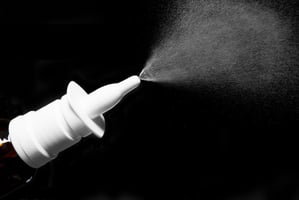Short-term use of very low doses of buprenorphine may help to decrease severe suicidal ideation in...
Study Identifies Ketamine Dosing Frequencies for Maintaining Efficacy Over 15 Days
 |
For the multicenter, double-blind trial, Jaskaran Singh, M.D., of Janssen Research and Development, and colleagues randomly assigned 68 patients with treatment-resistant depression to one of the four treatment groups: intravenous ketamine (0.5 mg/kg) two or three times weekly or intravenous placebo two or three times weekly, for up to four weeks.
The mean change in Montgomery-Åsberg Depression Rating Scale score from baseline to day 15 was significantly improved in both ketamine groups (−18.4 and −17.7 in twice-weekly and thrice-weekly groups, respectively) compared with the respective placebo groups (−5.7 and −3.1 in twice-weekly and thrice-weekly groups, respectively). There was no significant difference in MADRS scores between the two dosing regimens evaluated.
Adverse events included dissociative symptoms for up to three hours postinfusion, and treatment-related discontinuation (for nausea or irritability) occurred with only two patients.
“Treatment-resistant depression is a chronic condition, and studies with a longer duration are warranted to fully characterize whether the clinical benefits of ketamine can be maintained, and if so, whether they can be sustained despite reductions in the dosing frequency during chronic treatment,” the authors wrote.
Janssen Research and Development funded this study.
For related information, see the Psychiatric News article “APA Task Force to Address ‘What’s Next?’ for Ketamine.”
(Image: iStock/slobo)





